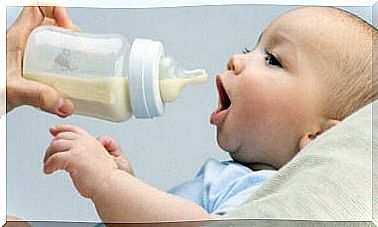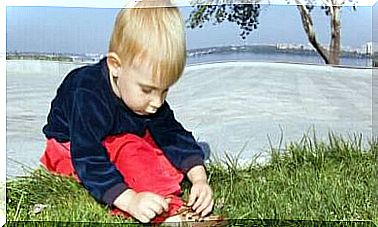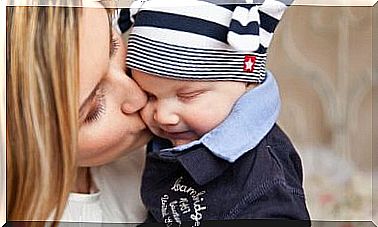Otitis In Babies: Manifestations And Treatments
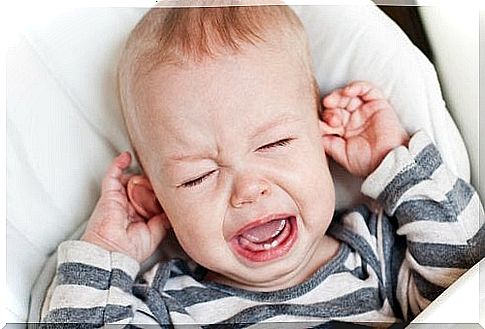
Ear infections in adults and children are easy to overcome with the help of a good antibiotic. A good example of this is ear infections in young children. But… What happens when otitis invades a small baby’s ears? In these cases the problem presents a greater degree of difficulty.
Both the diagnosis and treatment of otitis are quite different in children aged 0 to 36 months. The smaller the child, the more difficult it is to work with this inflammation.
In this article we will present the correct procedure to identify and treat otitis in babies.
How to identify otitis in babies
When a child suffers from ear infections, he simply indicates that his ear hurts and tells his parents what happens to him. However, a baby has no verbal skills and therefore will simply cry in the face of any pain.
Parents should try to identify what could be bothering their child. It is not an easy task, so it is good to be aware that the manifestation of otitis is quite frequent in young children, especially in the summer season.
If the pain is suspected to be coming from the ear, an alternative is to gently squeeze the baby’s ear. If you notice that the crying increases when you apply this pressure, it is possible that your child has otitis.
what not to do
If the baby is very small and you suspect otitis, take the child to the pediatrician. Only this specialist will be able to provide a correct diagnosis to know whether a specific treatment will be necessary or not.
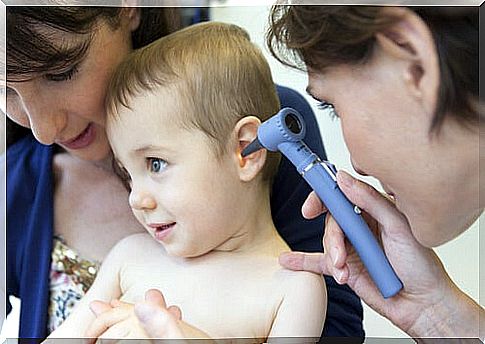
Also, remember that self-medication is extremely dangerous in babies aged 0-3 years. Never give an antibiotic yourself without a doctor’s prescription and authorization, as you could put the child’s life at risk.
Although otitis in babies is quite recurrent, keep in mind that careless behavior can trigger future problems .
Treatment of Otitis in Babies
Generally, otitis in babies under 2 years of age is treated with antibiotics and weaker anti-inflammatory drugs. It will all depend on the baby’s history, which is why the doctor’s examination will be extremely important.
The antibiotics and anti-inflammatory indicated for babies usually drops. For pain, doctors usually recommend commercial analgesics such as paracetamol or ibuprofen, always in adequate doses for children.
Remember that ibuprofen is not recommended for children under 6 months of age. In addition to these painkillers, there are other cares that we can offer to little ones to help improve their situation.
Creating the conditions to treat otitis
During inflammation, most doctors recommend suspending allergenic foods, and those based on dairy products.
It is essential to carefully dry babies’ ears after bathing to avoid ear infections. Once the baby already has inflammation, pay even more attention to drying the ears so as not to aggravate the condition. Apart from water, extremely dry environments can cause more pain and irritation to the affected area.
Some experts recommend applying hot water bags to the inflamed ear to relieve pain.
Ear care is essential in young children.
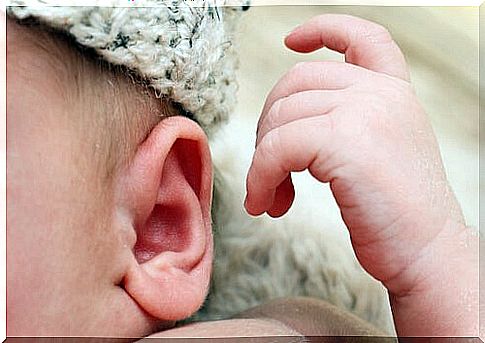
How do we know if the infection has gotten worse?
If the child presents with secretions, dizziness, vomiting or fever above 38 degrees, it is important that the parents take the child to the pediatrician, or to the emergency room. Remember that controlling fever in young children is critical.
If your child cannot walk properly, has loss of balance, or a stiff neck, take him to the doctor right away. Medical check-up is essential in these cases.
If a child undergoing treatment does not improve after the first 48 hours, it is advisable to go back to the doctor to check.
Some facts about otitis in babies
According to the Spanish Society of Otorhinolaryngology and Head and Neck Surgery, at least half of Spanish children suffer from otitis before reaching the first year of life.
Premature newborns and those with a genetic predisposition are the most prone to this infection.
In summary, otitis is a controllable and recurrent infection that rarely causes great inconvenience. However, it can lead to other complications if parents do not act prudently.




